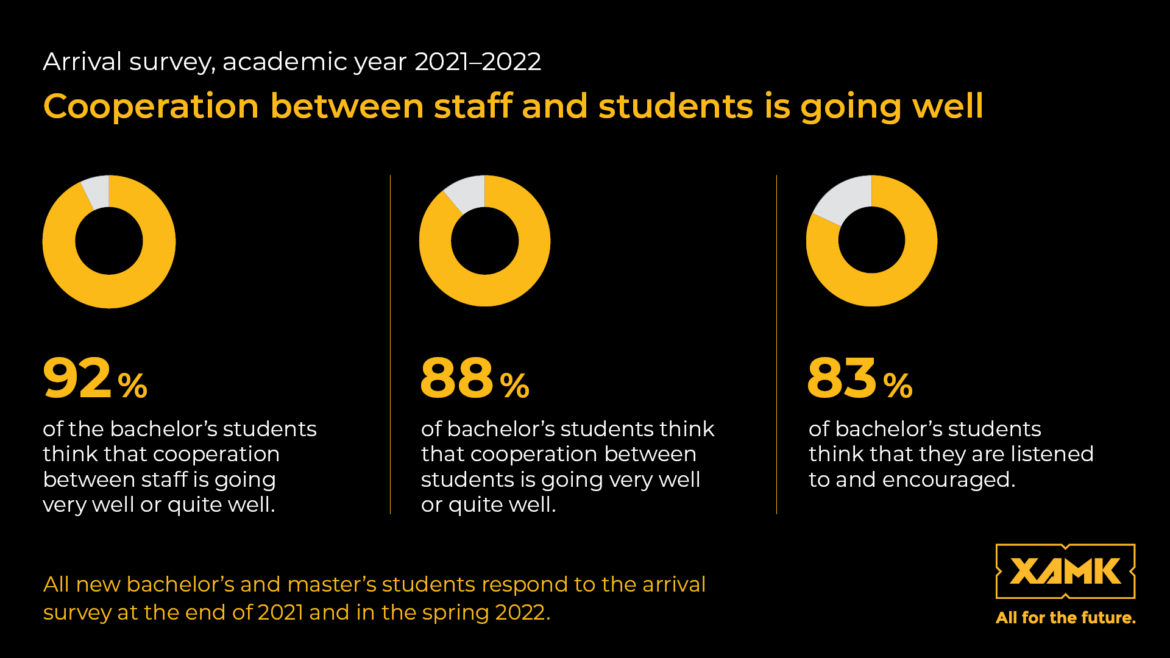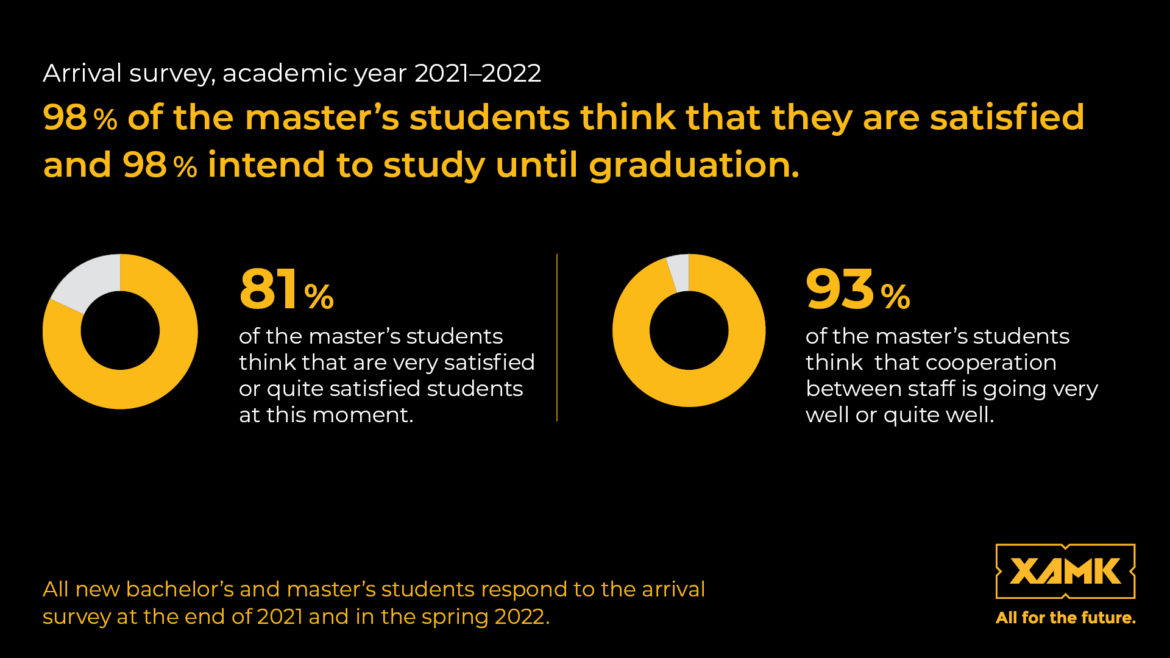The students who started to study at Xamk in the autumn and spring think that cooperation between staff and students is going well or very well. In addition, bachelor’s students think that they are also listened to and encouraged.
Students find that they are satisfied and they intend to study until graduation. Bachelor’s students’ satisfaction has been at same level for three academic years. Also master’s students are satisfied and 98 % intend to study until graduation.
These results came up clearly in the arrival survey which has collected at the end of 2021 and spring 2022. The arrival survey collects information on orientation related to starting studies, the atmosphere of education, student tutoring and student satisfaction. The survey concerns all new bachelor’s and master’s degree students.
There are also development targets
The survey also identified targets for development. In case of bachelor’s degree students this involved student tutoring which should be increased. For example, there should be more organized activities arranged by tutors. Bachelor’s degree students’ satisfaction with their studies has been at the same level for three academic years.
The most common reasons for unsatisfaction related to study tasks, for example, to unclear instructions, challenging scheduling or the number of tasks. In addition, students were worried about their success and progress in studies. Unsatisfaction was also caused by issues related to individual courses, such as their overall clarity, subject content or teaching methods:
The instructions for some of the tasks are unclear. The tasks overlap a lot, and because all deadlines are at the same time, scheduling is tricky”
“I feel a lot of pressure to complete everything. This is not the school’s fault, but it definitely disturbs concentration when you feel insecure”
Master’s degree student’s reasons for unsatisfaction involved tight scheduling, challenges related to study tasks and combining studies and everyday life.
Also the willingness to recommend Xamk was surveyed
The survey also examined how likely new students recommend Xamk. This was measured by an NPS meter. On the NPS scale, a score from 0 to 50 is good, a score between 50 and 70 excellent, and between 70 and 100 world class.
Bachelor’s degree students’ NPS was 27, which had weakened a bit from the last academic year. Master’s degree students’ willingness to recommend Xamk had risen from the last time. NPS was was now 46 when the results for the last academic year was 42.
According to open-ended replies students are ready to recommend Xamk as a place to study, because teaching is of high quality and teachers are brilliant. Also the variety of fields under study and good atmosphere received a lot of mentions.
“Good, humane teaching. Good facilities, inspiring teachers.”
”Teachers and staff have been brilliant”
“I think teaching is of high quality and flexible.”
More information
Quality Manager
Marjaana Kivelä
Arrival survey briefly
The arrival survey has two parts. The first part is about information related to starting studies, including
- orientation
- atmosphere of education
- student tutoring
- student satisfaction.
The second part deals with communication, marketing and image related factors.
All degree students respond to the arrival survey during their first semester. This survey is implemented twice a year, in the autumn and spring.
The rating scale is as follows: 1 = very poorly, 2 = quite poorly, 3 = not poor or well, 4 = quite well, 5 = very well.
In the academic year 2021−2022 the arrival survey covered the following:
- A total of 1 497 bachelor’s degree students replied to the arrival survey and the response rate was 63.
- A total of 366 master’s degree students replied to the arrival survey, and the response rate was 53.
The total results of the survey were good in all degree programmes. There were no major differences between the degree programmes.

